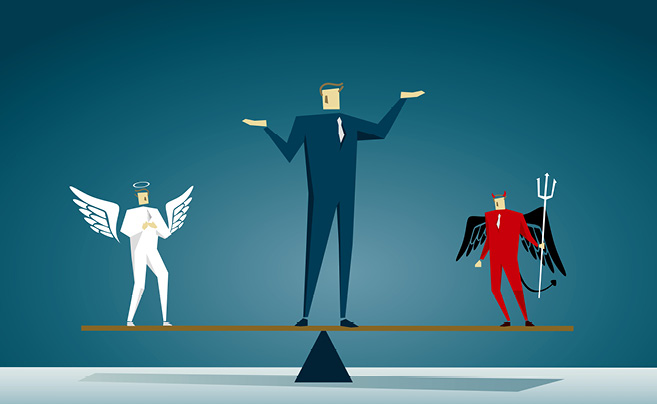The shadows of our mind
As humans, we have the capacity to hide parts of ourselves from ourselves. This capacity and tendency allows us to be blind to our deepest failures. Carl Jung, one of the fathers of modern psychology, explained it this way: “Everyone carries a shadow, and the less it is embodied in the individual’s conscious life, the blacker and denser it is.” We are literally able to hold uncomfortable truths from ourselves in the ‘shadows’ of our mind.
This is often related to what psychologists call ‘distress intolerance’; if we cannot handle the discomfort of seeing certain truths about ourselves, we hide them from ourselves in the shadows of our psyche. Unfortunately, this creates the capacity for astonishingly hypocritical behaviours.
Mindfulness
In its simplest form, practicing mindfulness means adopting a non-judgmental awareness of our attitudes, thoughts, emotions, bodily sensations, and environment in the present moment. It gives us the tools for seeing our shadow and allows us to uncover our leadership failures and deal with them appropriately.
As a corporate trainer and mindfulness teacher, one of my least favourite parts of teaching this subject is that groups quite often see my shadow and hypocrisy when I am teaching. For example, one group let me know that I was clearly angry with them for being argumentative. How could I be angry and claim to be a mindfulness teacher? Every part of me wanted to deny it and run from the shame I felt of being exposed. Most importantly, I didn’t want to admit it to myself. I wanted to believe that I was beyond that; more advanced than that.
But by owning my shadow and admitting it non-defensively, we were able to get back on track. I learned that it’s okay to fail—failure will be a companion through our lives—but it’s dangerous to deny the failure, especially when our credibility is on the line.
Mindfulness gives us the ability to ‘make the unconscious conscious’, or to uncover our shadows. The human mind has a capacity for self-deception. We hide our value violations from ourselves so skilfully that, many times, we are completely unconscious of when we have crossed a line. It’s like we are playing a game of hide-and-seek with ourselves.
Honesty
Jung concluded that, as long as we are deceiving ourselves, wholeness is impossible to achieve. I have seen numerous leaders improve their leadership, and also heal relationships and accept themselves more fully by ‘owning their shadow’ and being honest with themselves. To use mindfulness language, they became willing to be fully awake and present to their darker side; their less pleasant thoughts and behaviours. And by doing so, they progressively became more liberated from their shadows.
Without honestly addressing our capacity for denial and then shaking off the shadows that blind us, all leadership and self-improvement efforts are more or less smoke and mirrors. A leader’s most valuable investment is honesty; it heals, it awakens, and it liberates both the leader, and those who follow.







